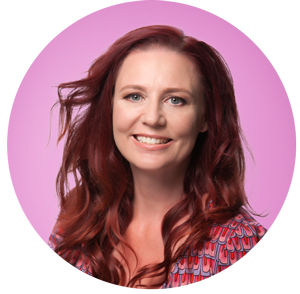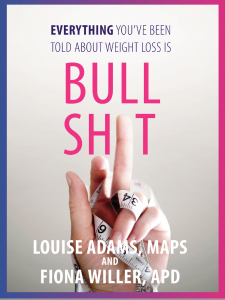Imagine the mindfuck that would be unleashed if an anti-obesity centre produced a ‘body positive’ play.
I shit you not, this has actually happened. Right here in Sydney, at the Charles Perkins Centre, the University of Sydney’s swanky $330 million ‘obesity research hub.’
#Charle$Perkin$ #Somuchmoney
Charles Perkins is promoted as an innovative, ultra hip institution who encourage ‘unexpected collaborations’ between disciplines. The Centre is responsible for continuing to employ diet peddlers Amanda Sainsbury Salis, (author of the “Don’t Go Hungry Diet”) and Dr Nick Fuller (author of “Interval Weight Loss For Life”), both of whom seriously claim to have found the ‘secret’ to lasting weight loss. This is of course ludicrous – surely if either one of them were remotely correct then the others’ tenure would not be necessary, but I digress….
One of the ways The Charles Perkins Centre has found to spend its gazillions of research dollars is funding a ‘writers in residence’ program, which gives creative writers $100k grants to hang out with obesity-tackling academics, scientists and researchers, and then produce ‘creative projects’. The lovechild of last year’s grant is the play Made To Measure, written by Alana Valentine. The playbill states:
“Commissioned by the University of Sydney’s Charles Perkins Centre, dedicated to easing the world’s lifestyle diseases such as obesity, diabetes, cardiovascular disease and related conditions, Made to Measure gives voice to the body positive community whilst exploring the science behind the effect of weight on our health*.”
I heard about this travesty of a play a few months ago, and simply couldn’t bring myself to pay money to go & see it. It felt like being invited to watch a play on abortion produced by the pro-life lobby, ostensibly to ‘give voice’ to the pro-life view whilst simultaneously ‘educating’ the audience about the horrors of said choice. In terms of the likely quality of an actual body positive message, the chances felt on par with Scientology giving psychiatry a fair go.
Luckily, a reader contacted me who had actually gone to see it. Sarah Eagle lives in Tamworth, and feeling somewhat deprived of the cultural arts, was genuinely excited to see such a production. Sarah lives in a larger body and actually is a body positive human – so what better person to review the play!
Here is Sarah’s review…
A Review of “Made to Measure”: Or, A fat princess with a short life span meets her handsome prince through Pigging
The story is about a young Australian woman called Ashleigh, played by the very talented Megan Wilding, who is fat but of course ‘should be thin.’ Ashleigh is getting married and is searching for a dressmaker to design her wedding dress, but finds it difficult because of her larger size. Ashleigh finds designer Monica (actor Tracy Mann), who graciously agrees to take her on. Initially, Monica is a marvelous and believable character who seems full throttle bopo, however this illusion soon shatters. Monica tells numerous stories about other larger bodied customers she’s designed wedding dresses for, and explains the importance of their weight loss attempts in preparation for their big day. If they didn’t lose weight, it was a sign they weren’t really in love with their fiancé, and Monica helpfully explains that those unfortunate brides who didn’t lose weight ended up leaving their husbands.
Ashleigh & Monica
Poor Ashleigh tries to explain that she has tried many ways to lose weight, but an ‘unknown medical condition’ prevents her from success. Ashleigh is helpless to her ‘disease of obesity.’ As they chat, Monica experiences the epiphany that maybe fat people aren’t just lazy or lacking in will power, but actually have something ‘wrong’ with them, a ‘medical issue’.
Monica’s realisation that Ashleigh is indeed a human being who has experienced repeated fat shaming and judgement is literally the only nod to ‘body positivity’ in the whole play.
But this is where any thread of body positivity messaging stops: by the end of the play Monica’s husband dies of a vaguely defined obesity related health condition. And we discover that Ashleigh has the same condition!
The overriding message of the play is that fat people are always sick, even if it’s not their fault that they can’t lose weight. Being fat is not celebrated or accepted anywhere in the play: the goal of being thin is not questioned, and a palpable sense of sadness around being fat and helpless soaks the atmosphere.
One of the most jarring and upsetting parts of the play is when we discover that Ashleigh only found love after being the butt of a cruel process called ‘pigging’ – the good old ‘pull a fat chick dare’. To win a bet and make his friends laugh, Ashleigh’s now fiancé brought her along as a ‘joke date,’ to the clapping and raucous cheering of his friends. But ‘in spite of her weight,’ he fell in love with her.
Perhaps this ‘pull a fat chick dare’ storyline was intended to give scientists and clinicians whose focus is to ‘eradicate obesity’ a chance to develop some much needed empathy around the daily shaming, humiliation and bullying people in larger bodies are subjected to in diet culture.
But the play glosses over the revolting behaviour of Ashleigh’s fiancé, thereby implicitly normalising the humiliation of fat people as they navigate romantic relationships.
In a supposedly body positive play, why is Ashleigh portrayed as so desperate she can forgive this humiliation? What on earth is body positive about that?
The play never genuinely addresses fat phobia. It simply pushes the same old message – the fat person must change, against all odds. It is such a shame that the message wasn’t “people in larger bodies are worthy of being treated with kindness and respect and all times, and do not have to tolerate shaming and humiliation- ever”.
Actor Sam O’Sullivan plays the voice of Ashleigh’s Inner Critic, and also, weirdly, her fiancé. How’s that for an additional twist!
#fianceorcritic??
In a truly body positive play, Ashleigh’s Inner Critic would have been accurately depicted as an external voice from Diet Culture, not Ashleigh’s internal ‘faulty thinking’. The tone of the play is sympathy rather than empathy, whilst Ashleigh is simultaneously blamed for having an internal demon who causes her distress. So: let’s feel sorry for the fat girl who can’t lose weight but also blame her for having a faulty brain that is wickedly awful to her because of her size.
Body positive, this is not!
The inner critic is cruel, mocking Ashleigh and her eating habits, then diverts to diatribes about companies who capitalise on sugar cravings, and the dirty tricks Big Food use to make people crave certain products. Then the Inner Critic changes tactics and softens, speaking with genuine care and kindness at one point, helping Ashleigh identify that she’d love to have the attention of men wouldn’t she? (diet culture sucks). That she enjoys flirting…but can’t…and has always missed out on this because she is fat and therefore unwanted and ugly (so anti bopo!).
It was disturbing to see the completely not body positive message that Ashleigh should change her appearance in order to be accepted by society, rather than at any point airing the idea that maybe society needs to change.
Horrendous stereotypes about why people are larger are dotted throughout the performance, such as the idea that sexual trauma in childhood makes people fat (it may certainly play a role, however it is also 100% the case that body diversity exists, just because it does!).
It strongly implies that Ashleigh is inevitably going to die young due to her large body, and that she has no control over this whatsoever. It is a cruel play that has elements of good intentions, but completely misses the mark.
To researchers and scientists, yes it is true! Fat phobia exists! And you SHOULD BE helping to put a stop to it. People in larger bodies are subjected to prejudice, stigma, discrimination, cruelty, bullying and harassment.This fat phobic way of treating people in larger bodies significantly contributes towards the development of self-hatred, which obviously presents a barrier to choosing health supportive behaviours. Imagine that the Charles Perkins Centre really looked at the impact of stigma, prejudice and discrimination on wellbeing for larger people? Or the link between self-loathing and stigma, and health outcomes? The link between bullying, non-acceptance of larger bodies and quality of life on people in larger bodies? And more broadly, the impact of diet culture on health outcomes?
The play was on in Sydney for a while, and thankfully did not get a lot of people watching. However, it was promoted to HSC school students studying literature or drama. Teens were encouraged to watch this ‘body positive’ play, which had an accompanying government health based Curriculum (i.e. the ‘eradicating obesity’ perspective) provided as part of the package, and this is deeply concerning.
The school performances were followed by post-show ‘seminars’ on ‘understanding healthy, safe and active lifestyles.’ These were lead by Dr Sainsbury Salis, because who better to lead a discussion on ‘body positivity’ with vulnerable teens than a woman who has written a weight loss book? And not only that, a woman who has literally published an opinion piece in a scientific journal calling for an end to body positivity?
Made to Measure is 100% not body positive, and it is misleading and damaging to say it is – particularly for teenagers. For these vulnerable kids, especially teens in larger bodies the central messages of the play are appalling: If you are fat, you may well have to endure bullying and humiliation from any potential partner in order to find ‘love’. And that certain death awaits you. The only hope here is that any teacher who took teens to this play were deadset body positive feminists, who openly discussed the completely unsubtle views of the funding body and the impact of this bias on the subsequent play.
– Sarah Eagle
We’re entering a strange new world my friends. There’s no doubt that the anti-obesity community are waking up to the reality of weight stigma. Even those committed to ‘tackling obesity’ are beginning to notice just how terribly diet culture treats people in larger bodies.
But there’s a difference between waking up to the massive injustice of size oppression and myopically viewing weight bias as a ‘barrier’ to weight loss. Big “O” are not so much awake as lightly dozing. Current ‘approaches’ to eradicating weight stigma revolve around the idea that we need to be nicer to fat people, so they’ll try harder to lose weight.
If you’re truly aiming to ‘give voice’ to the body positive community, one might assume it to be a good idea to actually speak to those within the body positive community. Not to speak to those committed to pathologising those in larger bodies.
If you want my recommendation, there’s a brilliant play on body positivity called “Everything you ever wanted” from Rachel Roberts. This one woman show blew my mind when I saw it last year, and word on the street is that she is touring soon. I cannot praise this work highly enough: her insight into weight science, diet culture, and the body positivity movement is breathtaking. Rachel nailed at, and guess what? She never consulted with Charles Perkins at all!
*“obesity” is a medical term which stigmatises body size, and in Australia it is not, in fact, categorised as a disease. And certainly not a ‘disease of lifestyle,’ another completely offensive term which blames individuals for developing chronic illness.
If you are struggling with diet culture and looking for something completely different, join us in our wonderful UNTRAPPED online program. Learn how to push back against diet culture and find peace with food, movement, and your body with the help and support of our incredible panel of anti-diet guides. Enter the code FIERCECOMPASSION at the checkout and get an amazing 20% discount! Hurry, limited offer ends soon.


